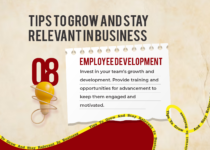Adaptive Marketing
14. Adaptive Marketing: Keep your marketing strategies fresh and adaptive. Use various marketing channels and techniques to reach your audience effectively.
Adaptive marketing is a marketing strategy that emphasizes flexibility and responsiveness to changing consumer behavior, industry trends, and technological advances. It involves constantly updating your marketing strategies and tactics to ensure they remain relevant and effective. Here are some key points and strategies for implementing a business plan:
1. Data-driven decision making: Collect and analyze data from multiple sources, including customer feedback, market research, and web analytics. Use this information to understand customer behavior and preferences and enable you to make better business decisions.
2. Multi-channel marketing: Use multiple marketing channels to reach the target audience. This can include social media, email marketing, content marketing, pay-per-click advertising, search engine optimization (SEO) and more. Pipeline diversification helps you adapt to changes in customer behavior and pipeline preferences.
3. Personalization: Tailor your ads and content to specific customers or groups. Personalization can increase engagement and conversion by providing relevant content and offers.
4. Agile Business: Borrowing the concept of agile software development, agile business involves rapid change and adaptability. Create a small business experiment, collect data, and adjust your strategy accordingly. This redundancy allows you to respond quickly to changing business conditions.
5. Publish Content: Create quality content that includes different content types such as blog posts, videos, infographics, and podcasts. Keep your content fresh and updated to keep your audience engaged and adapt to ever-changing search engine algorithms.
6. Media Listening: Monitor social media and online forums to find out what your customers are saying about you and your brand. business. Communicate with customers and respond immediately.
7. Automation and Artificial Intelligence: Use business automation tools and artificial intelligence to improve repetitive tasks, personalize ads, and better analyze data. Automation can free up time for better decision-making and creativity.
8. Testing and Optimization: A/B testing and conversion rate optimization are important components of adaptive marketing. Continually test different marketing strategies, messaging, and designs to determine what works best for your target audience.
9. Competitor Analysis: Take a close look at your competitors to understand what marketing strategies are working for them and what isn’t. Use this information to develop your own strategy and find a different approach.
10. Response to customers: resolve customer feedback through observation, analysis and direct communication. Use these tips to develop and adjust your business to meet your customers’ needs and concerns.
In today’s fast-paced business environment, business transformation is an effective way to stay competitive and provide value to your audience. By being flexible, data-driven, and responsive to market changes, you can keep your marketing campaigns relevant and effective over time.
businesstips014 #growth #relevance



